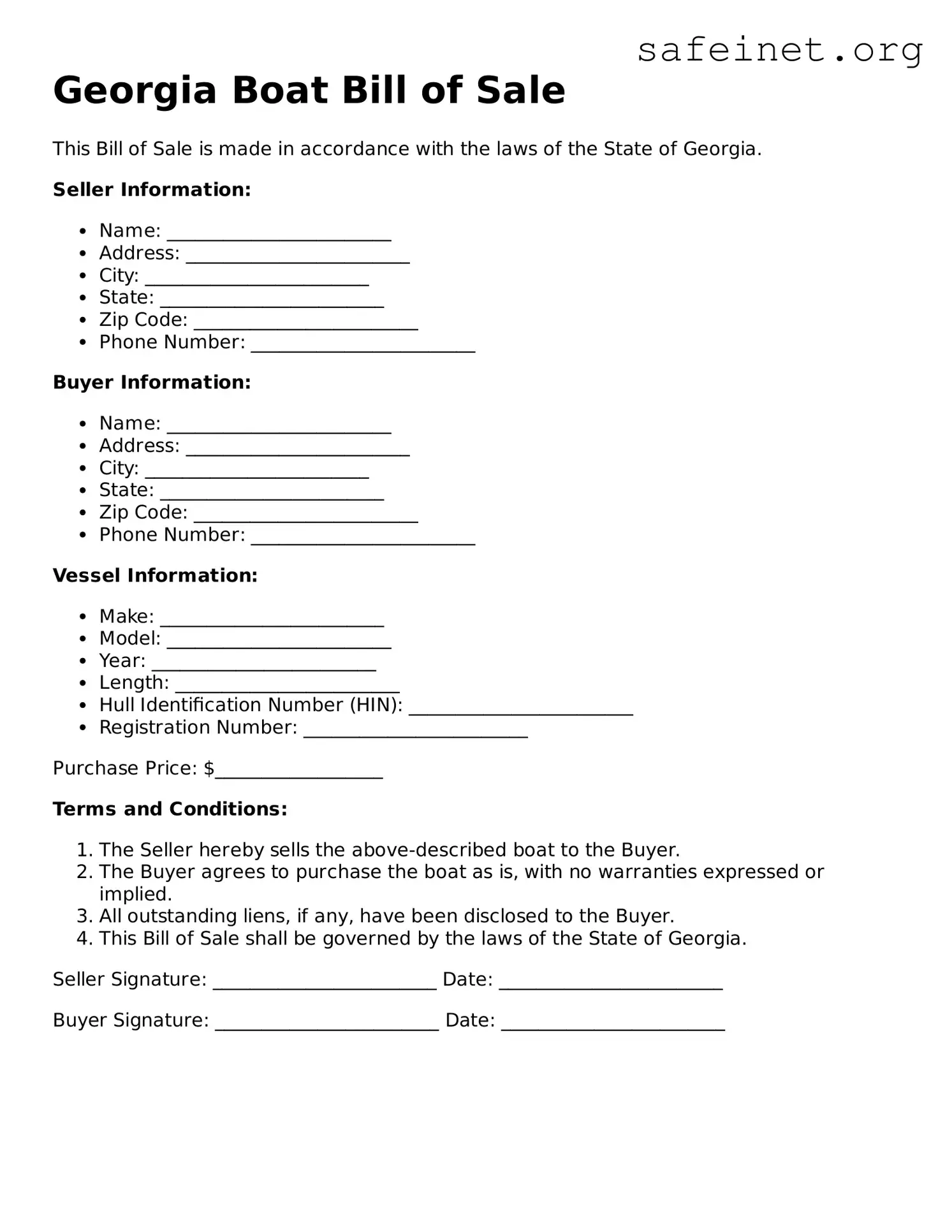What is a Georgia Boat Bill of Sale form?
The Georgia Boat Bill of Sale form is a legal document used to transfer ownership of a boat from one party to another in the state of Georgia. This form outlines details such as the buyer and seller's information, a description of the boat, the sale price, and the date of the transaction. It serves as proof of sale and may be required for registration or titling of the boat with the Georgia Department of Natural Resources.
Is the Boat Bill of Sale form required in Georgia?
While it is not legally required to use a Boat Bill of Sale form when selling a boat in Georgia, having one is highly recommended. This document provides evidence of the transaction and protects both the buyer and seller. It can be particularly useful if any disputes arise later regarding ownership or the condition of the boat at the time of sale.
What information should be included in the form?
A complete Georgia Boat Bill of Sale form should include the following information: the full name and address of both the buyer and seller, a detailed description of the boat (including the make, model, year, and hull identification number), the sale price, the date of the transaction, and both parties’ signatures. It may also be beneficial to include any relevant warranties or disclaimers concerning the condition of the boat.
Do I need notarization for the Boat Bill of Sale?
Notarization is not typically required for the Georgia Boat Bill of Sale. However, having the document notarized can enhance its validity and may provide added protection should any issues arise after the sale. If either party wishes to ensure that the transaction is fully documented, seeking notarization can be a good practice.
Where can I obtain a Georgia Boat Bill of Sale form?
You can find a Georgia Boat Bill of Sale form online through various legal template websites, state government pages, or boating organizations. Many resources provide downloadable and printable versions of the form. Always ensure that the form you use is up-to-date and compliant with current Georgia laws.
How should the completed form be used after the sale?
Once the Boat Bill of Sale form has been completed and signed by both parties, it serves as an official record of the sale. The seller should keep a copy for their records. The buyer will need to present the signed document to the Georgia Department of Natural Resources when registering or titling the boat. In some instances, the buyer may also need to provide additional documentation, such as proof of insurance or previous registration paperwork.
